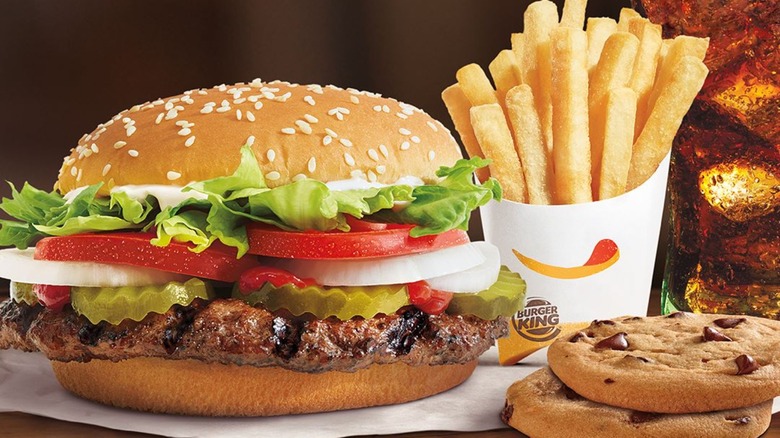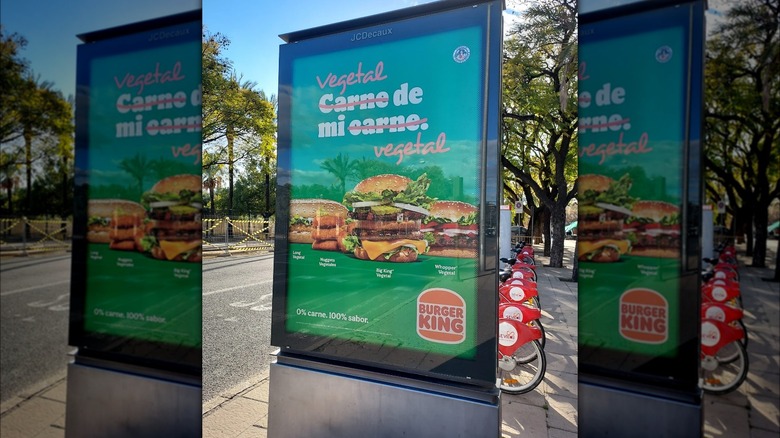Why Burger King Spain Came Under Fire For Its Holy Week Ads
Fast food has a long history of flirting with controversial advertising campaigns. According to Twisted, McDonald's drew criticism from fans after it ran a 2014 ad comparing french fries to "tall, blonde and gorgeous" women. Similarly, Burger King pushed a 2009 campaign in Singapore that equated a sandwich to a sex act, and Carl's Jr. used the U.S.-Mexican border wall and bikini-clad women in a commercial to promote its burgers. While these publicity campaigns ruffled some feathers, they may not be as widely remembered as when Jack in the Box made an off-color ad in the wake of the #MeToo movement (via CBS), or when McDonald's evoked the loss of a parent in order to sell its products, per The Washington Post.
Burger King in Spain has now jumped on the bad taste bandwagon after rolling out some very controversial advertisements during this past Holy Week. Catholic Sentinel reports that the brand repurposed some of the last words of Jesus in order to sell vegetarian burgers, and the Catholic community has taken up arms against the chain.
How Burger King angered Catholics
According to Catholic Sentinel, Burger King sparked the trending hashtag #BoicotBurgerKing after posting print advertisements reading, "Take all of you and eat of it. Which doesn't have meat. 100% vegetarian. 100% flavor. Big King Vegetable," and "Flesh of my flesh," with "flesh" redacted to show the word "vegetable." The text takes inspiration the Last Supper, when Jesus consecrated bread, and is being used to sell the brand's plant-based burger. Petitions have since emerged, calling for the boycott of the brand due to the sacrilegious nature of the ad.
Crux reports that Burger King has since apologized on Twitter, stating that it never meant to offend anyone and has since made the decision to remove the print advertisements. Despite the apology, many practicing Catholics have continued to express outrage, claiming that the brand would never have had the gall to launch a campaign making fun of Islam or Judaism. As of now, several religious leaders have joined in to denounce the restaurant, putting even more pressure on the chain, per Fox News. Though the backlash may blow over eventually, this PR debacle will almost certainly be remembered among other fast food advertising moments that embraced poor taste in order to sell food.

